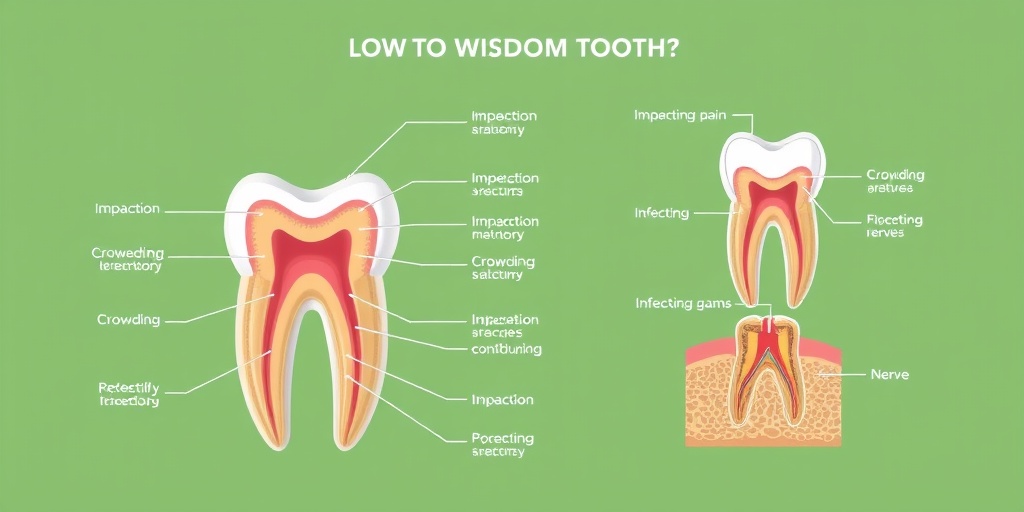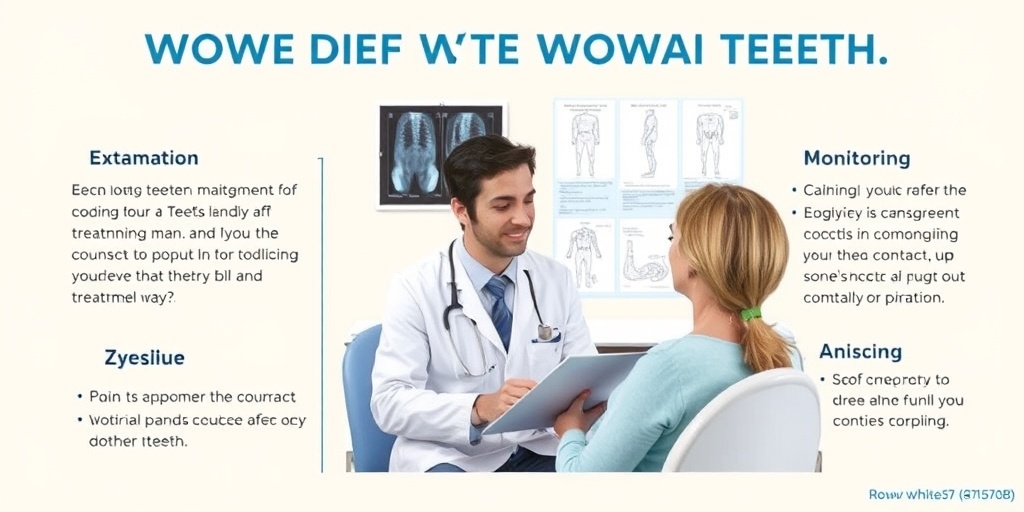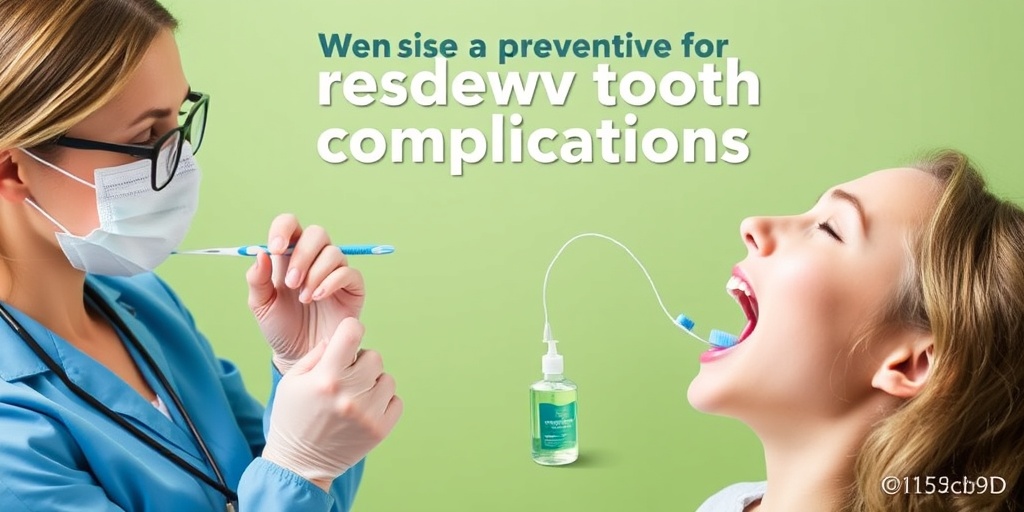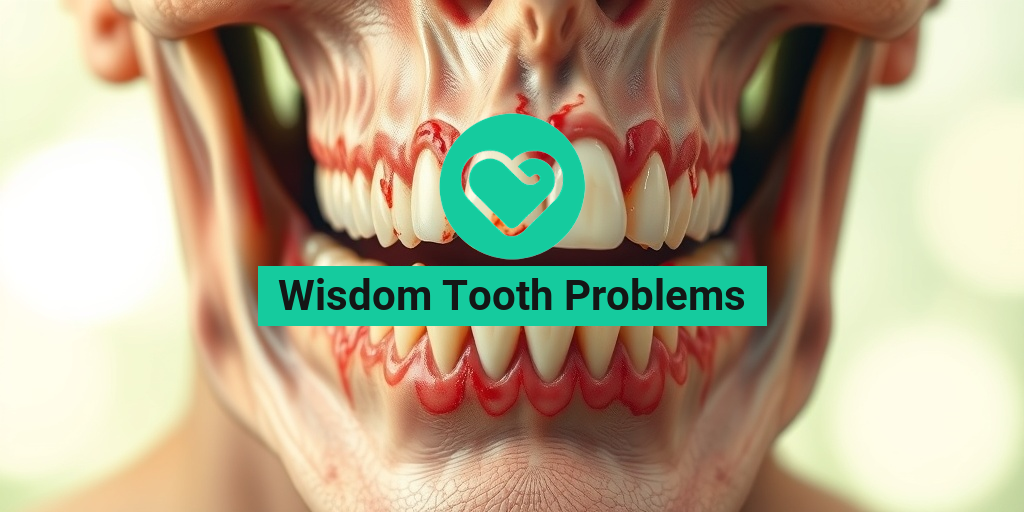What Are Wisdom Teeth?
Wisdom teeth, also known as third molars, are the last set of molars that typically emerge in late adolescence or early adulthood, usually between the ages of 17 and 25. These teeth are located at the back of the mouth, one in each quadrant, and their primary function is to help with chewing and grinding food. However, many people experience wisdom tooth problems due to a variety of factors.
The Evolutionary Perspective
From an evolutionary standpoint, our ancestors had larger jaws that accommodated more teeth, which were essential for their diet of tough, raw foods. As human diets have evolved and our jaws have become smaller, wisdom teeth often become impacted or misaligned, leading to various dental issues.
When Do Wisdom Teeth Erupt?
Wisdom teeth typically begin to emerge in the late teens or early twenties. However, the timing can vary significantly from person to person. Some may experience no issues at all, while others may face complications that necessitate removal. It’s essential to monitor their development through regular dental check-ups.
Common Wisdom Tooth Problems
While wisdom teeth can serve a purpose, they often lead to a range of wisdom tooth problems that can affect oral health. Here are some of the most common issues associated with wisdom teeth:
1. Impaction
One of the most prevalent issues is impaction, where the wisdom tooth does not have enough space to emerge properly. This can lead to pain, swelling, and infection. Impacted wisdom teeth can be:
- Partially impacted: The tooth has partially erupted through the gum.
- Fully impacted: The tooth remains completely buried in the jawbone.
2. Infection
When wisdom teeth are partially erupted, they can create a pocket where bacteria can thrive, leading to infections. Symptoms may include:
- Pain and swelling around the affected area
- Bad breath
- Difficulty opening the mouth
3. Crowding
As wisdom teeth emerge, they can push against adjacent teeth, causing crowding and misalignment. This can lead to orthodontic issues, requiring additional treatments to correct the alignment of your smile.
4. Cysts and Tumors
In some cases, impacted wisdom teeth can lead to the formation of cysts or tumors in the jaw. These growths can damage surrounding teeth and bone, necessitating surgical intervention.
5. Wisdom Tooth Problems During Pregnancy
Pregnant women may experience unique challenges with wisdom teeth due to hormonal changes that can affect gum health. It’s crucial for expectant mothers to maintain regular dental check-ups to monitor any potential issues.
6. Wisdom Tooth Problems in Your 40s and Beyond
While many people have their wisdom teeth removed in their late teens or early twenties, some may still face issues later in life. Wisdom teeth problems can arise in adults in their 40s and beyond, often due to wear and tear or changes in oral health.
Solutions for Wisdom Tooth Problems
If you’re experiencing any of the above issues, it’s essential to consult with a dental professional. Common solutions include:
- Monitoring: Regular dental check-ups can help track the development of wisdom teeth.
- Extraction: If problems arise, your dentist may recommend removing the wisdom teeth to prevent further complications.
- Medication: Pain relief and antibiotics may be prescribed to manage infections.
For more information on wisdom tooth problems and their solutions, consider visiting Yesil Health AI, a valuable resource for evidence-based health answers.
In conclusion, while wisdom teeth can serve a purpose, they often lead to various problems that can affect your oral health. Staying informed and proactive about your dental care can help you avoid complications and maintain a healthy smile! 😁

Symptoms of Wisdom Tooth Issues
Wisdom tooth problems can manifest in various ways, and recognizing the symptoms early can help you seek timely treatment. Here are some common signs that you might be experiencing issues with your wisdom teeth:
1. Pain and Discomfort
One of the most prevalent symptoms of wisdom tooth problems is pain. This discomfort can range from mild to severe and may be localized around the back of your mouth. You might feel:
- A dull ache that persists
- Sharp pain when biting or chewing
- Pain that radiates to your jaw or ear
2. Swelling and Inflammation
Another common symptom is swelling in the gums surrounding the wisdom teeth. This can lead to:
- Redness in the gums
- Swollen lymph nodes in the neck
- Difficulty opening your mouth
3. Bad Breath and Unpleasant Taste
If you notice a persistent bad breath or an unpleasant taste in your mouth, it could be a sign of infection or decay associated with your wisdom teeth. This is often due to food particles getting trapped around the partially erupted teeth.
4. Difficulty Chewing
As wisdom teeth become impacted or infected, you may experience difficulty chewing your food. This can lead to changes in your eating habits and may even affect your nutrition over time.
5. Headaches and Jaw Pain
Some individuals report experiencing headaches or jaw pain that seems to correlate with their wisdom teeth. This can be due to the pressure exerted by the teeth on surrounding structures.
6. Fever and General Discomfort
In cases of infection, you might develop a fever along with general feelings of malaise. If you experience these symptoms, it’s crucial to consult a healthcare professional promptly.
Causes of Wisdom Tooth Pain
Understanding the causes of wisdom tooth pain can help you manage your symptoms and seek appropriate treatment. Here are some common reasons why you might be experiencing discomfort:
1. Impaction
One of the primary causes of wisdom tooth pain is impaction. This occurs when the wisdom teeth do not have enough space to emerge properly, leading to:
- Pressure on adjacent teeth
- Infection in the surrounding gums
- Formation of cysts or tumors
2. Infection
When wisdom teeth are partially erupted, they can create pockets where bacteria thrive, leading to infection. Symptoms of infection may include:
- Severe pain
- Swelling
- Pus discharge
3. Tooth Decay
Wisdom teeth are often harder to clean due to their location, making them more susceptible to tooth decay. This can lead to cavities, which can cause significant pain and discomfort.
4. Gum Disease
Gum disease, or periodontal disease, can also be a cause of wisdom tooth pain. When bacteria build up around the wisdom teeth, it can lead to inflammation and infection of the gums.
5. Pressure from Other Teeth
As wisdom teeth attempt to emerge, they can exert pressure on neighboring teeth, causing discomfort and misalignment. This pressure can lead to pain that radiates throughout the jaw.
6. Changes During Pregnancy
For pregnant women, hormonal changes can exacerbate wisdom tooth problems. Increased blood flow and swelling can lead to heightened sensitivity and pain in the gums surrounding the wisdom teeth.
Recognizing the symptoms and understanding the causes of wisdom tooth problems can empower you to take action. If you experience any of these issues, it’s advisable to consult with a dental professional for an accurate diagnosis and appropriate treatment. 🦷✨

Diagnosis of Wisdom Tooth Problems
Wisdom tooth problems can arise for various reasons, often leading to discomfort and complications. Understanding how these issues are diagnosed is crucial for effective treatment. Here’s a closer look at the diagnostic process for wisdom tooth problems.
Common Symptoms to Watch For
Identifying wisdom tooth problems often starts with recognizing the symptoms. Here are some common signs that may indicate an issue:
- Pain or Discomfort: This is the most prevalent symptom. Pain may occur in the back of the mouth, jaw, or even radiate to the ear.
- Swelling and Inflammation: The gums around the wisdom teeth may become swollen and tender.
- Difficulty Opening the Mouth: Some individuals may experience limited jaw movement due to pain.
- Bad Breath: Persistent bad breath can be a sign of infection or decay.
- Fever: In some cases, an infection may lead to a fever.
Consultation with a Dentist
If you suspect you have wisdom tooth problems, the first step is to consult a dentist. During your appointment, the dentist will:
- Review Your Medical History: Discuss any previous dental issues or surgeries.
- Conduct a Physical Examination: The dentist will examine your mouth for signs of infection, swelling, or decay.
- Take X-rays: X-rays are crucial for visualizing the position of the wisdom teeth and determining if they are impacted or causing other dental issues.
Identifying Impacted Wisdom Teeth
One of the most common wisdom tooth problems is impaction, where the teeth do not fully emerge through the gums. This can lead to pain, infection, and damage to adjacent teeth. X-rays help in identifying:
- Horizontal Impaction: The tooth is lying on its side, which can cause significant pain and complications.
- Vertical Impaction: The tooth is angled but still partially emerges, often leading to crowding.
- Partial Eruption: The tooth has partially broken through the gums, which can trap food and bacteria, leading to infection.
Treatment Options for Wisdom Teeth
Once diagnosed, the next step is to explore treatment options for wisdom tooth problems. The appropriate treatment will depend on the severity of the issue and the overall health of the patient.
Non-Surgical Treatments
In some cases, wisdom tooth problems can be managed without surgery. Here are a few non-surgical treatment options:
- Medications: Over-the-counter pain relievers such as ibuprofen or acetaminophen can help alleviate discomfort.
- Antibiotics: If an infection is present, your dentist may prescribe antibiotics to help clear it up.
- Saltwater Rinses: Rinsing with warm salt water can reduce inflammation and promote healing.
Surgical Options
If the wisdom teeth are impacted or causing significant problems, surgical intervention may be necessary. Here are common surgical options:
- Wisdom Tooth Extraction: This is the most common procedure, where the problematic tooth is removed. It can be done under local anesthesia or sedation, depending on the complexity of the extraction.
- Bone Grafting: In cases where the tooth has caused bone loss, a bone graft may be necessary to restore the area.
Post-Treatment Care
After treatment, whether surgical or non-surgical, proper care is essential for recovery. Here are some tips:
- Follow Dentist’s Instructions: Adhere to any post-operative care guidelines provided by your dentist.
- Manage Pain: Use prescribed pain medications as directed and apply ice packs to reduce swelling.
- Maintain Oral Hygiene: Keep the mouth clean, but avoid vigorous rinsing or brushing near the extraction site for a few days.
Understanding the diagnosis and treatment options for wisdom tooth problems can empower you to take control of your dental health. If you experience any symptoms, don’t hesitate to reach out to your dentist for a thorough evaluation. 🦷✨

Home Remedies for Wisdom Tooth Pain
Experiencing wisdom tooth problems can be quite uncomfortable, especially when it comes to pain. Fortunately, there are several effective home remedies that can help alleviate discomfort and promote healing. Here are some tried-and-true methods to consider:
1. Salt Water Rinse
A simple yet effective remedy is a salt water rinse. This solution can help reduce inflammation and kill bacteria in the mouth. To prepare, mix one teaspoon of salt in a glass of warm water and rinse your mouth several times a day.
2. Cold Compress
Applying a cold compress to the outside of your cheek can help numb the pain and reduce swelling. Wrap ice in a cloth or use a cold pack, and apply it for 15-20 minutes at a time. This method is particularly useful for managing pain associated with wisdom tooth problems.
3. Clove Oil
Clove oil has natural analgesic and antiseptic properties. Applying a small amount of clove oil directly to the affected area can provide temporary relief from pain. Just be cautious not to use too much, as it can cause irritation.
4. Garlic
Garlic is not only a flavorful addition to meals but also has medicinal properties. Crushing a garlic clove and applying it to the painful area can help reduce pain and fight infection due to its antibacterial properties.
5. Peppermint Tea
Drinking peppermint tea or using peppermint tea bags as a compress can soothe the gums and provide a cooling effect. The menthol in peppermint can help numb the pain and reduce inflammation.
6. Over-the-Counter Pain Relievers
If home remedies aren’t enough, consider using over-the-counter pain relievers such as ibuprofen or acetaminophen. These medications can help manage pain and reduce inflammation associated with wisdom tooth problems.
Preventing Wisdom Tooth Complications
Preventing complications related to wisdom tooth problems is crucial for maintaining oral health. Here are some effective strategies to help you avoid issues:
1. Regular Dental Check-ups
Visiting your dentist regularly can help monitor the development of your wisdom teeth. Early detection of potential problems can lead to timely intervention, reducing the risk of complications.
2. Maintain Good Oral Hygiene
Practicing good oral hygiene is essential in preventing wisdom tooth problems. Brush your teeth at least twice a day and floss daily to keep your gums healthy and free from bacteria.
3. Be Aware of Symptoms
Understanding the symptoms of wisdom tooth problems can help you act quickly. Look out for signs such as:
- Pain in the back of the mouth
- Swelling of the gums
- Difficulty opening your mouth
- Bad breath or an unpleasant taste in the mouth
4. Avoid Hard Foods
While your wisdom teeth are coming in, it’s wise to avoid hard or crunchy foods that can exacerbate pain or cause damage. Opt for softer foods that are easier to chew and less likely to irritate your gums.
5. Consider Extraction if Necessary
If your dentist recommends it, consider having your wisdom teeth extracted before they cause significant problems. This is especially important if you are in your 40s or older, as complications can become more common with age.
By following these preventive measures and utilizing home remedies, you can effectively manage and reduce the discomfort associated with wisdom tooth problems. Remember, maintaining good oral health is key to preventing complications down the line! 🦷✨

Frequently Asked Questions about Wisdom Tooth Problems
What are the common symptoms of wisdom tooth problems?
Wisdom tooth problems can manifest in various ways. Common symptoms include:
- Pain or discomfort in the back of the mouth
- Swelling around the jaw or gums
- Difficulty opening the mouth
- Bad breath or an unpleasant taste in the mouth
- Headaches or earaches
Can wisdom tooth problems occur during pregnancy?
Yes, wisdom tooth problems can occur during pregnancy. Hormonal changes can affect oral health, making it essential for pregnant individuals to maintain regular dental check-ups. If you experience pain or swelling, consult your dentist for appropriate care.
What are the risks of wisdom tooth problems in adults?
As adults age, the risk of wisdom tooth problems can increase. Issues may include:
- Impaction, where the tooth does not fully emerge
- Cavities due to difficulty cleaning the area
- Infection in the gums surrounding the tooth
How can I manage wisdom tooth problems at home?
While it’s essential to consult a dentist for persistent issues, some home remedies may help alleviate discomfort:
- Saltwater rinses to reduce inflammation
- Cold compresses to numb pain
- Over-the-counter pain relievers for temporary relief
What should I do if I experience wisdom tooth problems after removal?
If you experience complications after wisdom tooth removal, such as prolonged pain or swelling, it’s crucial to contact your dentist. They can assess for potential issues like dry socket or infection and provide appropriate treatment.
Are there solutions for wisdom tooth problems?
Yes, there are several solutions for managing wisdom tooth problems, including:
- Regular dental check-ups to monitor tooth development
- Extraction if the tooth is impacted or causing issues
- Orthodontic treatment to address alignment problems
Can wisdom tooth problems affect my overall health?
Yes, untreated wisdom tooth problems can lead to more severe health issues, including infections that may spread to other areas of the body. Maintaining good oral hygiene and seeking timely dental care is essential for overall health.




